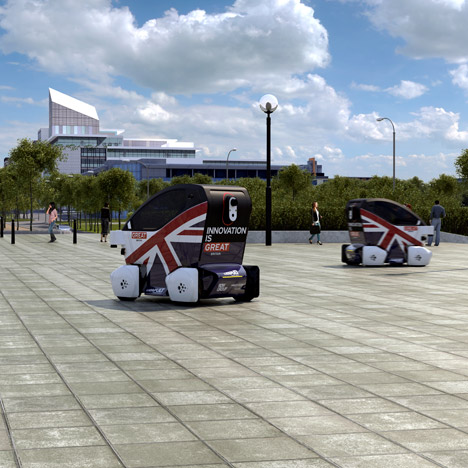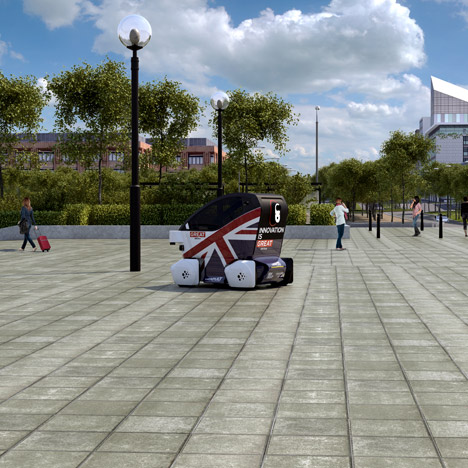UK launches answer to Google's driverless cars
News: the UK has unveiled a self-driving "pod" and announced regulations for testing automated vehicles on British roads later this year.
The Lutz Pathfinder, a pod-like electronic vehicle, will be the first autonomous vehicle allowed to run on public paths in the UK. It was revealed at an event organised by the UK government in London today.
"Driverless cars are the future," said transport minister Claire Perry, who also outlined a regulatory framework for introducing driverless cars to British roads in spring 2015.
"I want Britain to be at the forefront of this exciting new development, to embrace a technology that could transform our roads and open up a brand new route for global investment," Perry added.

Following the launch, a policy paper identifying the safest ways to trial vehicles on public roads was made available to the public. This document is specifically targeted at vehicles that can also be controlled by a human driver, and highlights potential issues that need to be addressed before testing can fully begin.
The spring regulation change will enable progress on four trials in Bristol, Milton Keynes, Coventry and Greenwich. These have been allocated £19 million of public funds, and are being carried out by a consortium that includes Nissan and BAE Systems.
Fully autonomous vehicles will be tested in the summer, and the government is also considering the implications of this.
"The trials present a fantastic opportunity for this country to take a lead internationally in the development of this new technology," Perry said.

The Lutz pod was created by a government backed research institute called Transport Systems Catapult, and is designed specifically to run on footpaths and pedestrianised spaces. But under the regulation changes, autonomous vehicles will be able to drive on normal roads later this year.
Equipped with sensor and navigation technology provided by the University of Oxford's Mobile Robotics Group, the Lutz pod's styling is dominated by its curving roofline.
Each wheel appears to be stepping out from the vehicle's body while the doors run almost entirely along its side.

Transport Systems Catapult is a branch of Catapult, a private- and publicy-funded organisation dedicated to creating centres for developing technologies that could help drive the UK's economic growth.
"Technology such as driverless vehicles, intelligent phone apps, and social media, will transform how we travel in the future – making journeys safer, faster, and more connected," explained Steve Yianni, chief executive of Transport Systems Catapult.
"Through the Lutz Pathfinder programme, the Transport Systems Catapult has pioneered the introduction of driverless pods in Milton Keynes and the first ever tests in the UK will take place later this year in a controlled public environment."

"The UK is at the forefront of this emerging new technology and poised to become the leading supplier of autonomous vehicles and systems around the world,” said Yianni.
Driverless cars have already been cleared for public testing in the USA, despite being delayed by safety regulations stipulating each vehicle should be fitted with "typical 'car parts" such as a steering wheel and brake pedal.
Main image Jack Taylor/Getty.